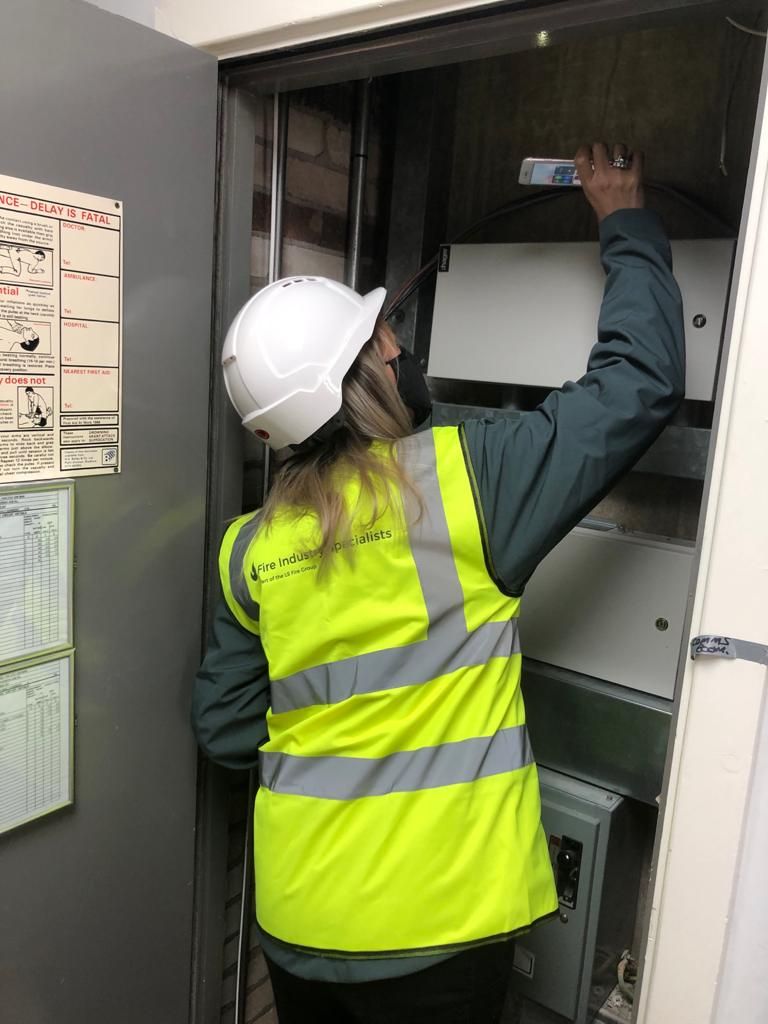Fire Stopping Surveys & Fire Door Surveys: Why Are They Important?
Key Takeaways
- Fire stopping surveys assess fire stopping measures, ensuring fire and smoke cannot spread through gaps or voids, maintaining fire resistance in buildings.
- Fire door surveys inspect the condition of fire doors, checking for proper function and compliance with safety standards.
- Both surveys are crucial for protecting lives, preventing smoke inhalation deaths, and ensuring safe evacuation routes.
- Regular inspections are legally required under the Regulatory Reform (Fire Safety) Order 2005 and other safety standards.
No matter what your building is used for – whether it’s a commercial office building, a school or a hotel – fire safety should always be at the top of your list to protect the lives of the people who use it.
Article 17 of the Regulatory Reform (Fire Safety) Order 2005 outlines your legal obligations as the responsible person for the building, stating that:
“Where necessary in order to safeguard the safety of relevant persons the responsible person must ensure that the premises and any facilities, equipment and devices provided in respect of the premises under this Order… are subject to a suitable system of maintenance and are maintained in an efficient state, in efficient working order and in good repair.”
For this reason, fire stopping surveys and fire door surveys are vitally important. But what are they all about and how do they help you to maintain your premises? This month, at Fire Industry Specialists Ltd, we’re going to take you through these two survey types.
What is a fire stopping survey?
A fire stopping survey is the professional assessment of the fire stopping measures in place in your building. Fire stopping is the act of ensuring that fire and smoke cannot travel easily between spaces via gaps, openings or voids, thereby maintaining fire resistance levels throughout your building.
This survey can sometimes become confused with a compartmentation survey, but a fire stopping survey focuses specifically on your fire stopping measures. We can perform fire stopping surveys as an IFC third-party certified company, helping to identify areas where work by contractors or the use of incorrect materials has compromised the fire stopping measures in your building.
We carry out this work using schematic drawings of a building to provide a full audit of any breaches, document our findings for your records and recommend any remedial action.

Why do I need a fire stopping survey?
The most important reason you need a fire stopping survey is for the protection of the people within your building. Many fire-related deaths occur due to smoke inhalation and fire-related fatalities commonly occur in rooms where the fire did not originally start. For this reason, it’s important to ensure your premises are fully assessed for openings, voids and gaps to help avoid the spread of fire should one break out.
Additionally, as mentioned before, it’s a legal obligation for you, as the responsible person, to stay on top of the maintenance of your facilities when it comes to fire safety. This is something a fire stopping survey can help you uphold.
What is a fire door survey?
A fire door survey is much as it sounds: a professional inspection of the condition of your existing fire doors. A variety of checks will be carried out before your doors are given a pass or fail, from which any required repairs and adjustments can be agreed upon in order to restore the full working order of your doors.
With a set of defined criteria, at Fire Industry Specialists Ltd, our DipFD-qualified team works methodically to assess all fire doors on your premises as part of a fire door survey, including covering the following:
- Door ID and signage
- Gaps within tolerance levels
- Whether the door closes fully in the frame
- Hinges, latches and handles
- Door seals

Why do I need a fire door survey?
Without a fire door survey, your doors will deteriorate over time because of how much they are used and how likely they are to be damaged by abuse or rough handling. This results in fire doors failing to do their job of resisting fire in an emergency. Fire doors allow for people within your building to evacuate safely and they also give much-needed time for fire and rescue services to arrive, ultimately making it far less likely that there will be any fire-related fatalities.
That’s the really important part. But of course, there is also your legal obligation, as set out at the start of this piece. Additionally, the regular inspection of your fire doors is also part of necessary fire safety maintenance as outlined in BS 8214 (Section 13) and BS 9999.
Here at Fire Industry Specialists Ltd, we carry out our fire stopping surveys and fire door surveys for premises across the UK, including Lincoln, Nottingham, Sheffield, Manchester, Birmingham and more. With over 100 years of combined experience, we cater for buildings in a wide range of sectors. We are always happy to provide further advice, as well as quotations for your consideration.
To make sure you’re doing your utmost to safeguard the lives of those in your building and also meet your legal obligations, call and book a fire stopping survey or fire door survey today.



